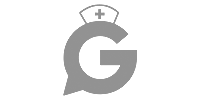Pharmacology is one of the most critical and challenging subjects for nursing students preparing for the NCLEX exam. While memorizing drug names is important, understanding the core concepts behind pharmacology will help you think critically — and answer NCLEX-style questions with confidence.
This article breaks down the 10 must-know pharmacology concepts that form the foundation of safe nursing care and will definitely show up on your NCLEX.
🎯 Free NCLEX quiz on this topic!
Test your knowledge after you finish reading.
1. Pharmacokinetics
Pharmacokinetics is how the body processes a drug — from start to finish.
It includes:
- Absorption: How the drug enters the bloodstream
- Distribution: How it's transported to tissues/organs
- Metabolism: How the drug is broken down (mostly by the liver)
- Excretion: How it exits the body (primarily via kidneys)
Example: A patient with liver failure may not metabolize morphine properly, increasing toxicity risk.
📌 Want to see this in action? Explore Next Gen NCLEX Case Studies to apply concepts like pharmacokinetics in real scenarios.
2. Pharmacodynamics
While pharmacokinetics is what the body does to the drug, pharmacodynamics is what the drug does to the body.
It involves:
- Mechanism of action (how the drug works)
- Receptor interactions
- Therapeutic and adverse effects
Example: Beta-blockers reduce heart rate by blocking beta-adrenergic receptors.
3. Drug Classifications
Understanding drug classes helps you organize hundreds of medications more easily.
Focus on:
- Therapeutic use (what the drug treats)
- Mechanism of action (how it works)
- Prototype drugs (the “main example” from each class)
Common classes:
- ACE inhibitors (e.g., lisinopril)
- Antibiotics (e.g., penicillin)
- Anticoagulants (e.g., warfarin)
- Opioid analgesics (e.g., morphine)
📌 Study tip: Master these using our 25 NCLEX Medications Every Nurse Should Know article.
4. Adverse Drug Reactions
Adverse drug reactions (ADRs) are harmful, unintended effects that can occur even at normal doses.
Watch for:
- Organ-specific toxicity (liver, kidneys, etc.)
- Allergic reactions
- Life-threatening effects like anaphylaxis or serotonin syndrome
Example: Vancomycin can cause "red man syndrome" if infused too quickly.
For a full breakdown, see NCLEX Pharmacology Made Easy.
5. Medication Administration
Knowing how and when to give meds is just as important as knowing what they are.
You should understand:
- Routes: oral, IM, IV, subcut, transdermal
- Timing: before/after meals, bedtime, peak/trough
- Techniques: Z-track for IM injections, IV compatibility, etc.
Always use the 5 Rights: Right patient, drug, dose, route, time.
6. Dosage Calculations
Dosage accuracy can be life-saving — especially with high-risk meds like heparin or insulin.
Know how to:
- Convert units (mg → mcg)
- Use dimensional analysis
- Calculate weight-based dosages (mg/kg)
- Titrate doses based on lab values
Example: A pediatric patient may need 5 mg/kg of a med every 8 hours — calculate carefully!
📌 Practice now with NCLEX Dosage Calculations: Practice Questions + Shortcuts
7. Drug Interactions
Drug-drug and drug-food interactions can make meds stronger, weaker, or more dangerous.
Example: Grapefruit juice inhibits liver enzymes that metabolize statins, increasing the risk of toxicity.
Common interactions to know:
- Warfarin + NSAIDs = ↑ bleeding risk
- MAOIs + tyramine-rich foods = hypertensive crisis
- Calcium + tetracyclines = ↓ absorption
8. Pharmacogenetics
Pharmacogenetics studies how genetics affect a patient’s drug response.
Example: Some patients lack the enzyme to metabolize codeine into morphine → the drug is ineffective.
This is especially relevant in:
- Pain management
- Chemotherapy
- Antidepressants
Expect future NCLEX questions on this emerging field as personalized medicine becomes more common.
9. Medication Safety
Patient safety is priority #1 when it comes to pharmacology.
Key safety concepts:
- Double-checking high-alert meds
- Using barcodes and electronic MARs
- Recognizing look-alike/sound-alike meds
- Educating patients on side effects and proper use
Follow institutional protocols and always advocate for patient clarity.
10. Commonly Used Medications
You should be able to recognize:
- What they treat
- Common side effects
- Serious adverse effects
- Key patient teaching
Some examples:
- Lisinopril → ACE inhibitor → watch for dry cough, hyperkalemia
- Furosemide → loop diuretic → monitor potassium, watch for ototoxicity
- Insulin → monitor glucose, rotate injection sites
Want a curated drug list? Check out our 25 NCLEX Meds You Need to Know
Final Thoughts: Master the Concepts, Not Just the Names
While memorizing medications is part of pharmacology, understanding how and why they work is what truly sets you apart as a nurse. These 10 core concepts will show up repeatedly in NCLEX questions — and in real-life clinical situations.
Don’t just study harder. Study smarter. Start with the big picture, then dive into the details using GoodNurse’s pharmacology library.
More Pharmacology + NCLEX Articles to Explore
- 25 NCLEX Medications Every Nurse Should Know
- NCLEX Pharmacology Made Easy: Must-Know Drugs for 2025
- NCLEX Dosage Calculations: Practice Questions + Shortcuts
- Next Gen NCLEX Case Studies: 25 Practice Questions
- How to Build a Personalized NCLEX Study Plan with AI







